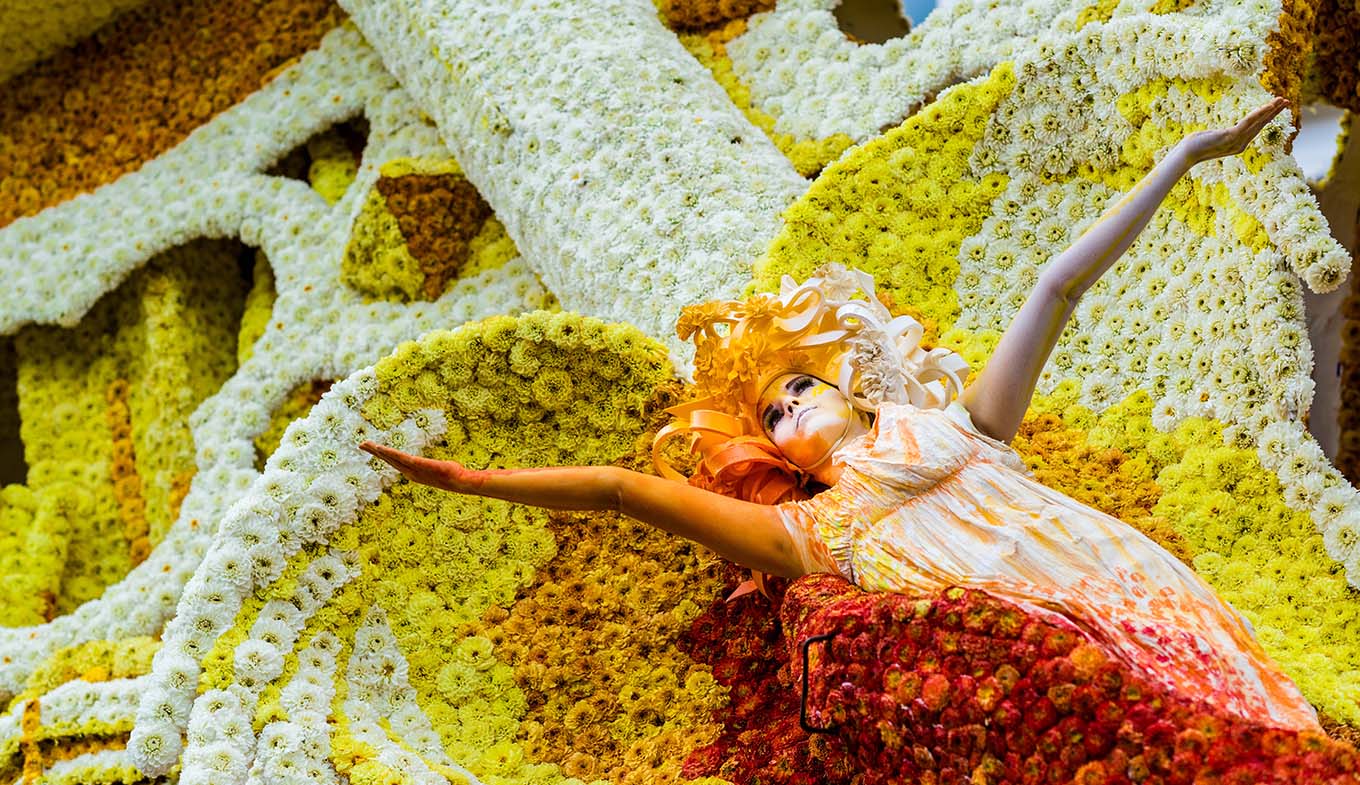
UNESCO confirms the heritage status of Corso Culture - Dec. 20, 2021
A corso is a parade of floats or boats decorated with flowers, fruit, vegetables and, in some cases, people in costumes. The parade is often accompanied by bands and performers. A corso is a competition: the float judged best by the jury wins a prize. Typical corsos use
flowers including tulips, hyacinths and daffodils in the spring, and dahlias in August and September. There is also a fruit corso held in Tiel. Many corsos also feature vegetables, reeds, bark, grass, seeds, plants and other decorative flowers.
Corsos take place across the world, but corso culture is at its strongest in the Netherlands. There are about thirty different parades held annually in the country, of various sizes and character. There are very small, local parades, but the Netherlands also hosts the world’s
biggest flower parades. Some also take place at night and are illuminated. The biggest parades have floats that are twenty metres long and ten metres high, often with moving parts. One float can contain up to 500,000 dahlia flowers. Hundreds of people are involved to decorate each float with flowers during the last hectic days before the parade.
Corso culture is about much more than the parade alone. Groups of friends or communities often spend months preparing their floats. Having a drink or meal together after working on the floats and organising regular parties is an important part of it all. The sense of social cohesion and contributing to a feeling of solidarity is often people’s main reason for taking part. Each corso has its own construction groups or neighborhoods which build floats and plant and maintain flower fields together. The size of these groups varies from ten or so people to several hundred. In total for the whole country, some 75,000 volunteers are actively involved in the parades. Corso events in
the past have attracted more than 1,500,000 visitors from the Netherlands and abroad every year. Live broadcasts are watched by an estimated 2,000,000 viewers.
In 2020, the Dutch government nominated the Corso culture in the Netherlands for the UNESCO Representative List of Intangible Cultural Heritage of Humanity. UNESCO has now confirmed the heritage staus of Corso Culture in December 2021.